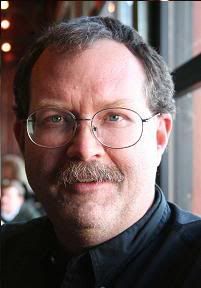The Politics of Ownership
A lot of wind was expelled (orally, of course) explaining why George Bush won the election and the GOP gained control of both houses of Congress. Pundits representing a spectrum of ideas offered their analyses – it was moral concerns, success in getting out the vote, or the new voting bloc of “security moms” that put GW over the top.
Pollster John Zogby has a different take. He theorizes, based upon polling results, that economics helped George Bush win. In a recent column called “Investors for Bush,” Zogby explains his thinking, and supplies the data to back it up. He points out some post election figures that shed new light on the election.
It has been an unquestioned tenet of politics that certain voting blocs were identified by race and gender. Zogby’s numbers call these assumptions into question. Do minorities always vote Democratic? Yes, most do. But what if we were to break those blocs into blocs? How did traditionally Democratic voters vote if they were a part of the growing “investor class?”
The numbers were surprising. Union members with private investments went for Bush 57% to 42%. Women who consider themselves investors voted for Bush by a 10 percent margin, and a whopping 60 percent of Hispanics who hold portfolios voted for President Bush. Regardless of ethnicity, sex, age or occupation, 61% of investors voted for Bush. It appears that to most investors Bush was seen as the candidate who wants to let them build a little nest egg, while John Kerry was the guy who wanted them to depend on the generosity of government.
Don’t make the mistake of assuming that “investor” equals “rich.” Thanks to the IRA and 401K, there are many investors out there who are far from rich. But a few years spent watching their private accounts grow have made them believers that the power of the market offers them a shot at a decent retirement. Even through the boom and bust that was the dot-com fiasco, their retirement accounts show a better return on investment than their social security “contributions.”
History has witnessed bitter struggles, but the one that will never end is the struggle between the haves and the have-nots. The beauty of our markets and form of government is that there has never been more economic mobility than one may find in this country today.
You might think that the rich are always the rich, and the poor are always the poor. But the rich and poor are not like closed sets that one might encounter in elementary math classes – a set of 5 apples and set of 15 oranges. In the world of income, apples can become oranges and oranges become apples.
A study authored by the Joint Economic Committee of Congress found that people move up and down the prosperity ladder. The report said, "The degree of income mobility in American society renders the comparison of…income levels over time virtually meaningless." In plain English, almost 9 of 10 tax filers in the bottom income class graduate from this group within 10 years. IRS records show that "an individual who began the 10-year period under study in the bottom quintile had a greater chance of rising to the top by the end of the period than remaining at the bottom." You might say that in modern America, the poor can and do get richer.
The investor class no longer consists of an elite group of Vanderbilts and Carnegies. Today’s investors are the Smiths and the Browns. Mr. Zogby says that the investor group he is watching “is neither dominated by the wealthy nor do members necessarily aspire to become wealthy…this group tells us they simply are saving for a retirement that maintains their current lifestyle and for college for their children.”
Zogby concludes that the strategy of Bush and the GOP brain trust may cause a fundamental realignment in American politics by giving more people the opportunity to control their circumstances. However, Bush and Associates might care less about political realignment and more about seeing you have a life that doesn’t depend on the mailman bringing a yellow envelope with a government check each month.
President Bush calls his plan the “Ownership Society.” His plan calls for tax reform and Social Security reform. Zogby, reportedly a Democrat himself, ends his article with a bit of advice for the Democratic Party. “Just saying no is not a policy and demographics are not destiny. Ignore the "ownership society" at your own peril.”
Since Reagan was elected, the Democratic Party has made class envy the linchpin of its strategy. That strategy is losing potency in the face of a growing investor population. Bush and Zogby may call it the “ownership society.” I call it fulfilling “The American Dream.”

